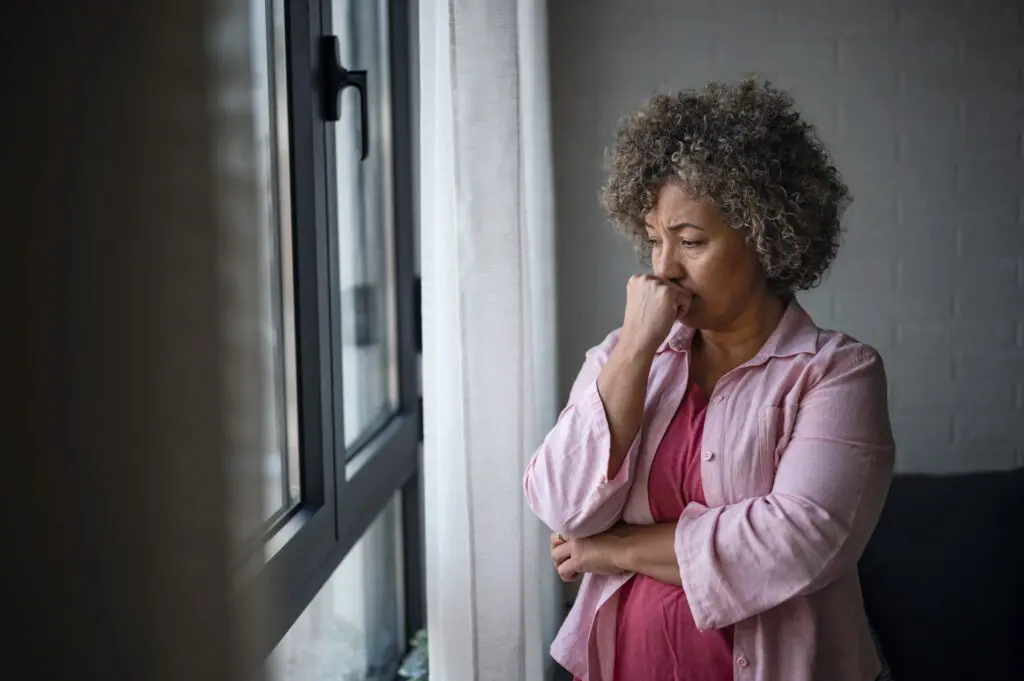Anxiety
One of the most common requests we receive is counseling for anxiety. With the world we live in, and the increased demands in our lives, along with many other factors, so many people of all ages find themselves struggling with anxiety. You are not alone, and we can help.
Although anxiety can present in a variety of ways, you may find yourself dealing with:

- Constant worry
- Racing thoughts
- Worst case scenario thinking
- Overthinking
- Avoidance of fears or triggers
- Physical sensations like rapid heart beat or breathing, physical pain, stomach aches, headaches
- Panic attacks
- Sleep issues
Do you find symptoms like these, or others, interfering with your daily life or relationships? Is your worry out of control and you feel stuck and like nothing works? Therapy helps you take back control of your thoughts and learn to find peace in your body and mind. Understanding what anxiety is and how it affects your physical body, learning ways to manage and decrease stress and worry, along with getting to the root of your anxiety, aids in lasting change.
Can counseling help with my anxiety?
If your anxiety is limiting your optimal functioning, and you find yourself stuck in your worry, you could benefit from seeking outside help and counsel. If your relationships, work, home life, or other areas of your life are impacted, don’t wait to get support. Specifically, if you experience regular panic attacks, or panic attacks “out of nowhere,” we want you to know there is relief to be found. You don’t have to suffer, and you definitely don’t need to suffer alone. You might be surprised how even making an initial appointment could take the edge off your anxiety.
What does therapy for anxiety include?
Most counseling at West Michigan Wellness Group starts with the therapist hearing your story, what brings you into counseling, and landing on some goals for your time in therapy. In regards to anxiety, the counselor helps you understand what is happening in your body physiologically, along with offering tools and ways to manage your symptoms. Therapists are highly trained in techniques to help you overcome your anxiety, and if you are open to it, most will want to dive deeper into the root of your symptoms and support you in finding deeper healing. As always, you are in the driver’s seat in the therapy room, and the counselor offers sensitivity to your particular story and agrees to go at your pace.
There is hope
 All of the therapists on our team are trained in treating anxiety. Their approaches vary but may include therapy that examines and modifies your behaviors and thoughts (Cognitive-behavioral therapy), tools for emotional regulation, mindfulness, and various relaxation techniques. Therapy helps many people feel equipped to manage and decrease the intensity of their anxiety without the use of medication. That being said, we are here to partner with you and other tools (like medication) if that is your story.
All of the therapists on our team are trained in treating anxiety. Their approaches vary but may include therapy that examines and modifies your behaviors and thoughts (Cognitive-behavioral therapy), tools for emotional regulation, mindfulness, and various relaxation techniques. Therapy helps many people feel equipped to manage and decrease the intensity of their anxiety without the use of medication. That being said, we are here to partner with you and other tools (like medication) if that is your story.
Ready to see if counseling might be a good next step for treating your anxiety? Contact us to get connected to a therapist.
Additional support available through our podcast
Through Rough Waters - Episode 2 - The Science of Anxiety
Through Rough Waters - Episode 6 - Anxiety through Transition
Through Rough Waters - Episode 25 - Anyone else feeling stressed out?
